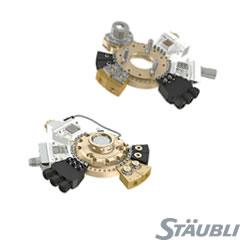Revolutionizing Pharmaceuticals: The Rise of Robots in Drug Development and Patient Care
Pharmaceutical robots streamline the production of personalized medications by automating compounding and dispensing processes tailored to individual patient needs. Healthcare professionals often recommend personalized medicine for geriatric patients with chronic disorders to enhance condition management. Consequently, the rising demand for personalized medicine is fueling the adoption of pharmaceutical robots.
The pharmaceutical robots market is set for remarkable growth, driven by an increased prevalence of chronic diseases and a heightened demand for automation in healthcare. Valued at $177.9 million in 2022, this market is expected to advance at a compound annual growth rate (CAGR) of 10.3%, reaching an impressive $426.8 million by the end of 2031.
The Automation Transformation: A New Era in Healthcare
Pharmaceutical robots are revolutionizing the healthcare industry by automating critical processes that were previously manual and time-consuming. These sophisticated systems are designed to handle a range of tasks from drug development and packaging to dispensing and quality control. By enhancing efficiency, precision, and safety, pharmaceutical robots are addressing key challenges in the drug manufacturing process and providing substantial benefits across the healthcare sector.
• Drug Development and Quality Control: Automation in drug development processes, including formulation, mixing, and dispensing, ensures greater accuracy and reduces the risk of contamination. Robotic systems are pivotal in maintaining a sterile environment, crucial for the production of high-quality pharmaceuticals.
• Packaging and Distribution: Automated packaging and distribution systems streamline the logistics of drug delivery, ensuring that medications are handled and transported safely and efficiently.
• Patient Care and Personalized Medicine: The rise in chronic diseases such as diabetes, cardiovascular conditions, and cancer has increased the need for personalized medication. Pharmaceutical robots facilitate the production of tailored medications, enhancing patient care and treatment outcomes.
Chronic Diseases Drive Market Expansion
The growing prevalence of chronic diseases is a significant factor propelling the pharmaceutical robots market. Chronic conditions like diabetes, cardiovascular diseases, cancer, and respiratory disorders require ongoing medication and precision treatment. As the global population ages and lifestyle-related diseases become more common, the demand for automated solutions in drug development and delivery intensifies.
• Statistics on Chronic Diseases: According to the World Health Organization, noncommunicable diseases (NCDs) account for approximately 74% of all global deaths, with cardiovascular diseases leading the tally. The need for effective and efficient drug management systems is more critical than ever.
Surge in Automation Demand
The drive towards automation in healthcare is transforming the pharmaceutical landscape. Advanced robotic systems, integrated with artificial intelligence (AI) and machine learning, are optimizing drug development processes and improving patient care. These innovations are enhancing productivity, reducing manual errors, and ensuring a higher standard of safety in medication management.
• Technological Advancements: The integration of smart systems and automated drug delivery solutions is revolutionizing pharmaceutical logistics. These technologies are designed to maintain a controlled environment, minimize contamination risks, and streamline inventory management.
Asia Pacific: The Leading Region in Pharmaceutical Robotics
Asia Pacific has emerged as a dominant force in the pharmaceutical robots market. The region's growing demand for pharmaceutical products and advancements in healthcare infrastructure are fueling market growth. With significant contributions from countries like Japan and China, the region is at the forefront of increasing production capacities and adopting industrial robots.
• Aging Population: The rapid aging of the population in Asia Pacific, with projections indicating that the number of people aged 60 years or over will double by 2050, is driving demand for chronic disease management solutions.
Key Industry Players and Innovations
Leading companies in the pharmaceutical robots market are investing in research and development to stay ahead in this dynamic industry. Companies such as Kawasaki Heavy Industries, FANUC Corporation, KUKA AG, and ABB are at the forefront of technological advancements, focusing on integrating the latest innovations into their robotic systems.
• Recent Developments:
o ABB and XtalPi: In December 2023, ABB partnered with XtalPi to launch automated laboratory workstations in China. This collaboration aims to enhance productivity in research and development across biopharmaceuticals, chemical engineering, and new energy materials.
o Noah Medical and UChicago Medicine: In May 2023, UChicago Medicine deployed Noah Medical's Galaxy robot system for bronchoscopies, significantly improving early detection of lung cancer and patient outcomes.
Future Prospects and Market Trends
The pharmaceutical robots market is poised for significant growth, driven by technological advancements and the increasing need for automation in drug development and patient care. With key players continually innovating and regions like Asia Pacific leading the way, the future of pharmaceutical robotics promises to be both exciting and transformative.
As the industry evolves, pharmaceutical robots will continue to play a crucial role in advancing healthcare, ensuring that drug development processes are more efficient, precise, and patient-focused. The ongoing investment in robotic technology and automation is set to drive further advancements, making the pharmaceutical robots market a key area of growth and innovation in the coming years.
Featured Product

